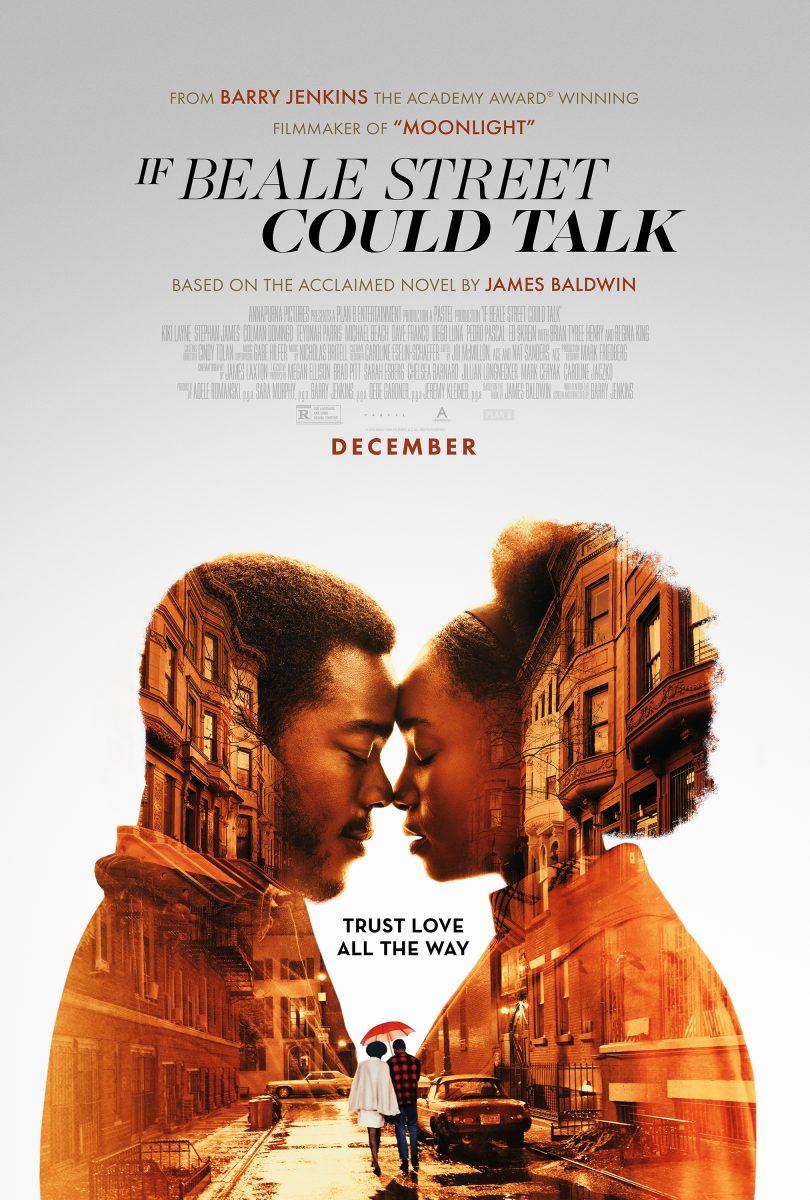Barry Jenkins gained acclaim relatively early in his career with his 2008 film “Medicine for Melancholy,” but his national recognition didn’t come until his Academy Award-winning film “Moonlight” in 2016.
Jenkins has firmly established himself as one of the top American directors of the past 10 years, and this reputation will certainly continue for films in the future. However, his latest project, “If Beale Street Could Talk,” feels restrained in comparison to his previous work.
The film is an adaptation of the acclaimed novel of the same name by James Baldwin. The story, set in 1970s Harlem, paints the beautiful yet heartbreaking love story of Clementine “Tish” Rivers and Alonzo “Fonny” Hunt. Tish and Fonny’s love is tested when Fonny is thrown in jail for a crime he didn’t commit, and the racist justice system is set on keeping him locked away.
As far as book-to-film adaptations, Jenkins does an incredible job of capturing the spirit of the novel, but he struggles to achieve the same level of realism. The Harlem that Jenkins creates is certainly beautiful, but the essence of the environment feels fabricated in comparison to the novel. The film feels as though Jenkins has kept the beauty of the novel and removed the gritty, realistic outcome of his characters. The beauty, at times, feels empty, and the emotional connection with the characters is severed during these scenes.
The most shocking element of the film is the heavy reliance on voice-over. Jenkins has proven himself one of the best filmmakers when it comes to conjuring the exact feeling he wants from his audiences, so the use of this cheap ploy was equal parts confusing as it was annoying. Rather than Jenkins using his proven talent, he relies on a narrator, Tish, to explicitly describe to the audience the emotions or actions of the characters. This mutes the film’s emotional aspect as Tish constantly reminds the audience of the dire situation of oppressed lovers. The narration also restricts the source material from blossoming into a new creation through the art form of cinema. Rather, the audience is left wishing to be reading Baldwin’s novel instead of the watching the film.
However, as much as Jenkins mutes his own story through the unnecessary use of narration, there are many instances in which Jenkins reminds the audience of his poetic potential. A few of the scenes, such as the marvelous panoramic shot of Fonny’s woodworking abilities, are on-par with the shots from his previous works. Unfortunately, these scenes are rare and fail to completely make up for the lack of creativity in the majority of the rest of the film.
Overall, “If Beale Street Could Talk” is an engaging enough adaptation of Baldwin’s novel to warrant a viewing, but isn’t commensurate to the same emotional investment as either Jenkins’ previous work or Baldwin’s novel. That said, the film remains a lovely love story interwoven with relevant commentary and should absolutely be supported in theatres. Jenkins has proven his filmmaking ability with his previous masterful artwork, and he will continue to influence the medium of film until the end of his career.
Cole Fowler is an English sophomore and
Life & Arts writer for The Battalion
Jenkins’ ‘If Beale Street Could Talk’ lacks realism
January 24, 2019
Donate to The Battalion
Your donation will support the student journalists of Texas A&M University - College Station. Your contribution will allow us to purchase equipment and cover our annual website hosting costs.





















